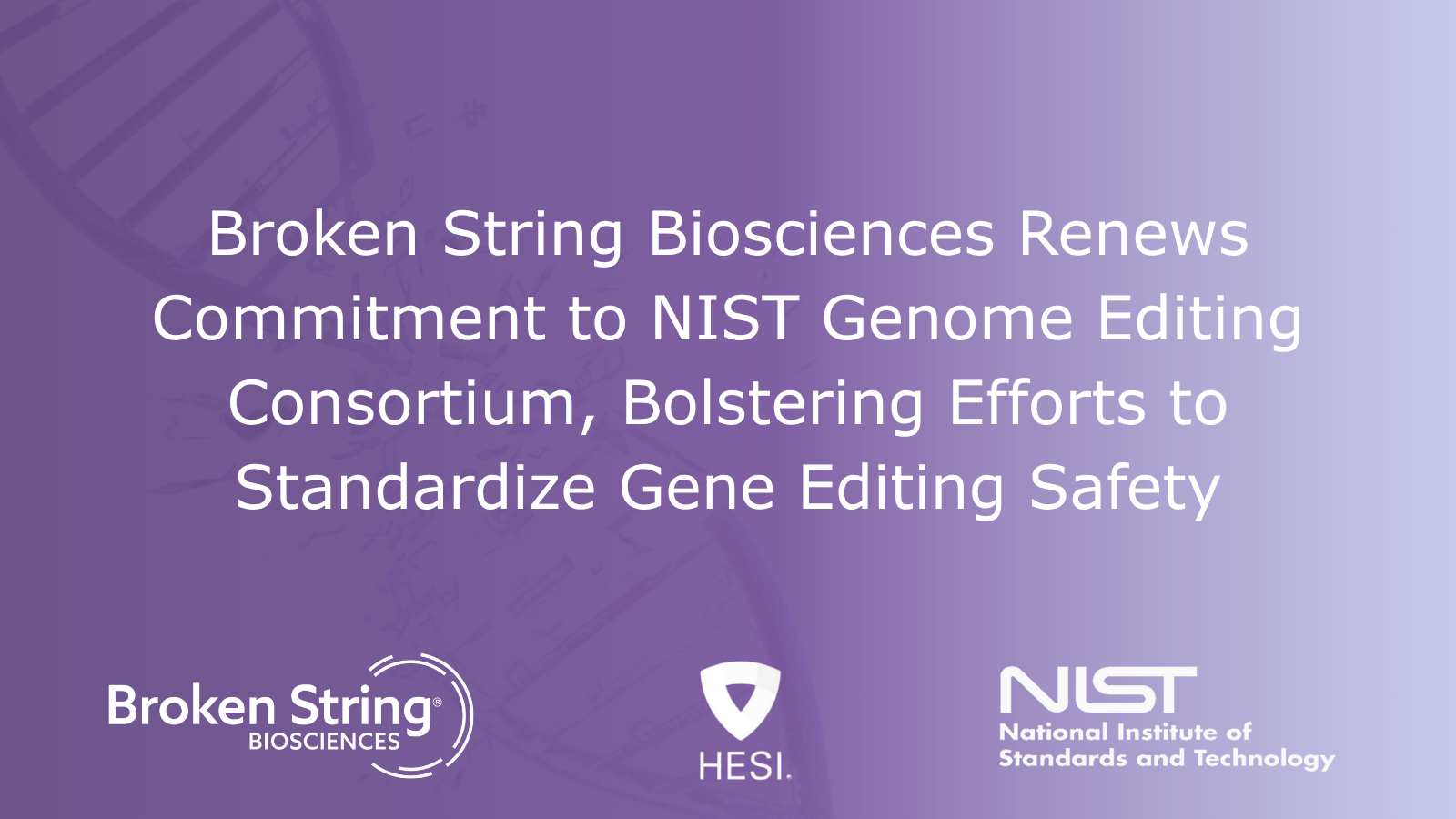
BOSTON & CAMBRIDGE, England–(BUSINESS WIRE)–Broken String Biosciences (“Broken String”), a leader in advancing gene editing safety, today announced its formal re-engagement as a member of the National Institute of Standards and Technology (NIST) Genome Editing Consortium. Broken String plays a key role in developing the gold-standard of safety testing for gene-editing therapies, based on its INDUCE-seq® platform. INDUCE-seq is commercially deployed today to address a critical challenge in the safe development of gene therapies: identifying unintended edits that may activate oncogenes or disable tumor suppressors.
Broken String’s participation in the NIST Genome Editing Consortium is part of the company’s efforts to shape industry-wide safety standards for emerging genome editing technologies, including CRISPR, base editing, and prime editing. The company continues to partner with the consortia and other leaders in the field to publish findings and engage with regulators to promote greater understanding and adoption of its breakthrough technology. One such effort is the cross-sector Health and Environmental Sciences Institute Cell and Gene Therapy – Tracking, Circulation, & Safety (HESI CT-TRACS) Committee, where 30 like-minded partner companies – including major biopharma partners – are helping advance breakthrough technologies that improve human health.
“Gene editing holds enormous promise, but without standardized tools to assess both on- and off-target edits, developers will continue to face challenges in demonstrating safety to regulators and the public,” said Felix Dobbs, CEO and co-founder of Broken String. “Our ongoing collaboration with NIST and leading industry partners such as AstraZeneca and Novartis underscores the urgency of our work. We believe that implementing INDUCE-seq early in the development process can significantly reduce the risk of costly regulatory holds and adverse effects, protecting both patient safety and business investment. This is how we help realize the full potential of life-changing gene therapies.”
This renewed collaboration underscores Broken String’s commitment to advancing the safety and standardization of gene-editing therapies through its innovative INDUCE-seq platform. INDUCE-seq is a technology intended to help standardize the gene therapy industry. The NIST Genome Editing Consortium is dedicated to generating crucial data that Broken String believes will highlight the superior features of INDUCE-seq, a PCR-free platform that enables unbiased, high-resolution detection of double-strand DNA breaks (DSBs). This includes its reproducibility, robustness, and sensitivity, surpassing existing approaches in off-target detection.
For more information on the NIST Genome Editing Consortium, visit https://www.nist.gov/programs-projects/nist-genome-editing-program.


